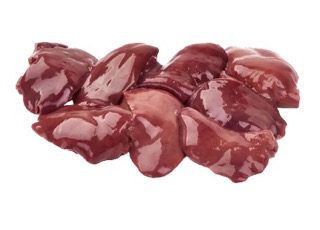

Duck liver can be a healthy addition to a dog’s diet, promoting a shiny coat and healthy skin while aiding in the absorption of iron and calcium. However, it is important to feed it in moderation as it contains high levels of copper, which can lead to toxicity in excessive amounts.
Duck liver is a great source of protein, iron, and essential vitamins, making it a nutritious option for dogs. It is also hypoallergenic, making it ideal for dogs with food allergies. The high copper and zinc content in duck liver helps maintain a dog’s coat and skin health while aiding in nutrient absorption.
Consuming too much liver can lead to copper toxicity, so it is important to feed it in moderation. Additionally, liver is high in phosphorus and purines, which can be problematic for dogs with kidney issues or uric acid stones. Proper food safety practices should also be observed when preparing duck liver.
When feeding duck liver to your dog, it is recommended to source organ meat from free-range or organic ducks. It can be served raw or cooked, but if you are concerned about bacteria, make sure to cook it thoroughly. It is important to feed organ meat in moderation, with no more than 5% of a dog’s total diet consisting of liver. If your dog has kidney issues or uric acid stones, consult with your vet before adding duck liver to their diet.
Duck liver is a rich and flavorful food that can be a tasty treat for dogs. It is high in protein and contains vitamins and minerals that are beneficial for a dog's health. However, it should only be given in small amounts as it is also high in fat, which can cause digestive issues and weight gain if consumed in excess.
There are some risks associated with feeding duck liver to dogs. It is important to make sure that the liver is cooked thoroughly to avoid the risk of salmonella or other bacterial infections. Additionally, since duck liver is high in vitamin A, excessive consumption can lead to vitamin A toxicity, which can cause bone and joint pain, dehydration, and even death in extreme cases.
If a dog shows any signs of distress or illness after consuming duck liver, it is important to seek veterinary care immediately. In extreme cases, such as if a dog has consumed a large amount of liver or is exhibiting severe symptoms of vitamin A toxicity, hospitalization may be necessary.
Safer alternatives to duck liver include lean meats such as chicken or turkey, or organ meats such as beef liver or kidney. These options are lower in fat and vitamin A, making them a safer choice for dogs.
If serving duck liver to a dog, it is important to do so in moderation. One safe serving idea is to slice the liver into small pieces and use it as a high-value training treat.